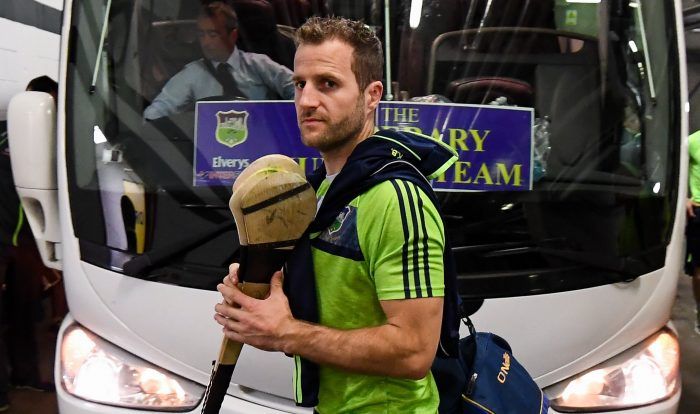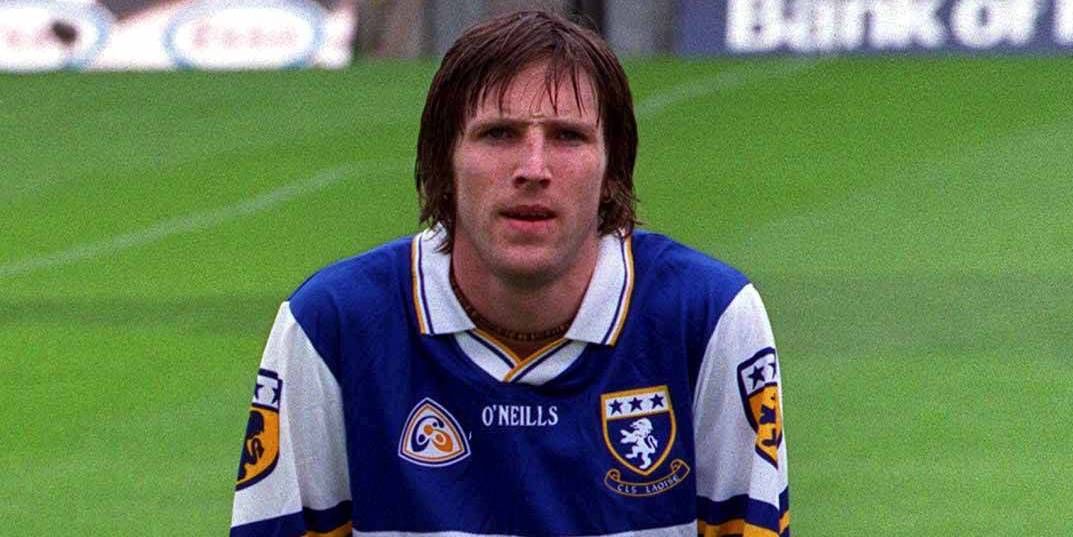Paddy O’Rourke caused a stir last week with an article he wrote for AIB.
In the piece, he outlined his decision to quit the Meath senior squad at just 28 years of age.
He’s not alone.
Others have gone before him, more will follow. Inter-county hurlers, Brendan Bugler and Kieran Bergin, recently outlined their reasons for retiring early too.
Bugler, a new father, cited the extra gym sessions, meetings and video analysis and an attitude that one size fits all as a reason he wanted to retire.
Kieran Bergin was even more scathing:
“If I was back and I was 18 again, I would not have chosen hurling. The level of commitment they are asking is basically give up drink for the entire year. No other sport is asking you to do that.”
This is a new phenomenon within the GAA and one we can expect more and more of.

Since S&C and recovery sessions have become an everyday part of inter-county setups, commitment levels have increased dramatically. Instead of training twice per week with a match at the weekend like when I started, players now have recovery sessions on a Monday – often having to WhatsApp the team management to prove they’re doing it – field sessions Tuesday and Thursday, Gym sessions Wednesday and a match at the weekend. That’s not including meetings, video sessions and tactical walkthroughs on Saturdays.
When you throw in commutes for so many players, it’s easy to see how many struggle with the commitment levels required.
There are obviously those who don’t mind doing what it takes and the reaction to Paddy’s piece has been polarised. Carlow’s Darragh Foley clearly enjoys the level of commitment required and he will not be alone in that way of thinking.
You either enjoy being a part of a inter county set up or not!! Nobody forcing lads to be apart of it. Gives my life a structure and drive to keep improving! Maybe we are just lucky with the management we have in place!
— Darragh Foley (@Dfoley9) February 15, 2018
There’s no right or wrong answer for players when it comes to this issue. Panels are composed of 30 different individuals with different personalities, schedules, careers and family lives – some will find the commitment easy and others will find it a struggle.
It’s no surprise to me that Darragh works as a rep on the road and obviously can organise his own time around training. He lives locally too which is a big help.
Generally, inter-county players like training – that’s never the issue. You don’t get to that level without a good work ethic. It’s all the other nonsense that goes with it. Inter-county managers can get sidetracked by rules and silly commitments and they often lose sight of what is important which, in my opinion, is performance in training and games.
In my experience there’s nothing more frustrating than getting scolded by management for arriving to training late after running from work and sitting in traffic at rush hour to get out of Dublin city center while one of the local lads, who comes way behind you in the runs in training, rolls off the couch and drives a mile down the road and can get there early.
There was a similar attitude to drink bans. Instead of performance in training indicating your commitment levels, suddenly it was your ability to abstain from alcohol that determined how committed you were. Of course, I struggled with that one and got a reputation for being uncommitted despite generally being at the top of the runs in training.
I remember when I played with Parnells, the manager wanted us to train at 7am. He wanted to do this because Pat Gilroy trained the Dublin team at that time and he wanted to copy him. I said in a team meeting that I didn’t want to do it. I lived on the other side of the city and there was no need for it.
The question was put to me by the manager, ‘do you want to win a Dublin championship?’ My commitment levels were now being judged by my willingness to get up at 6am ahead of how I performed in training and matches.
Another interesting line in Darragh’s tweet is, ‘nobody is forcing lads to be apart of it.’
This is a common attitude you hear from supporters. They have no empathy for players that might struggle with the commitment. It’s cutthroat – off you go if you don’t want to do it.
It’s not so easy to walk away. There are family pressures and more importantly pressures you put on yourself. You love the game and have been immersed in it all your life. You desperately want to make it and fulfill your childhood dreams. You’re good enough to play but find it a struggle. Should these players be told to clear off?

I remember dropping off the panel one year and my uncle calling to the house. He was a big fan of mine in my playing days and always defended me (he was a busy man).
He pleaded with me not to do it – I was supposed to be Laois captain and he just couldn’t comprehend why I would walk away. I know my parents were really disappointed too.
I was going travelling and it was nothing to do with commitment. I’m sure leaving a panel because you don’t want to commit while living in Ireland is an even more difficult decision.
Supporters can’t understand players dropping off panels because they themselves would do anything to be part of an inter-county panel. Similarly I’d do anything to be part of a Premier League squad. That doesn’t make it right.
Instead of supporters judging commitment levels or comparing it to non-contact individual sports like rowing or swimming, try asking professionals in similar team sports like rugby, soccer or AFL what they think of what GAA players do and they will say they’re mad.
Trust me, I have asked. Trying to fit the levels of preparation these professional athletes do outside working hours is laughable to them. And all for the pride in the jersey.
We can expect many more articles like Paddy’s as players retire and get the courage to speak out. Currently, we have players getting up at 7am for work, working 8 hours, commuting to training after work, train for an hour or more, have a meeting, get something to eat and arrive back to their houses around midnight.
Ronaldo, and many other soccer players, get credit for their dedication for staying back and practicing free kicks after a two-hour session – their only work of the day.
As Joe Brolly would say, the prosecution rests its case.




















































